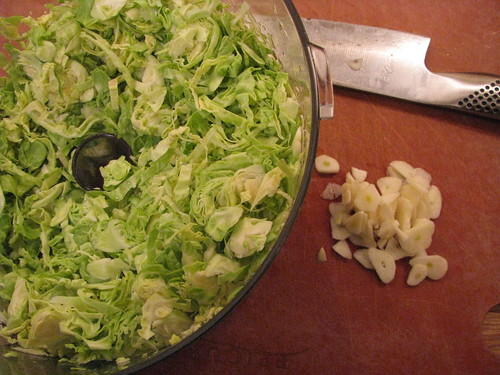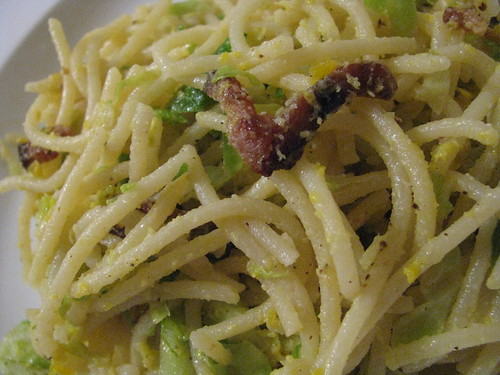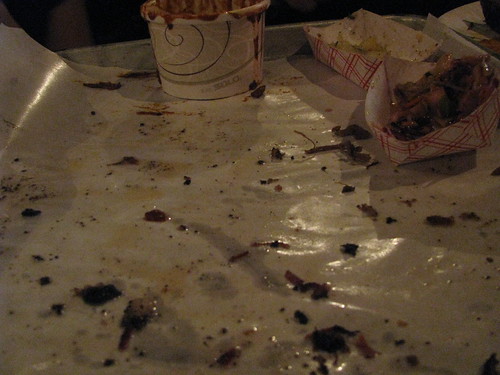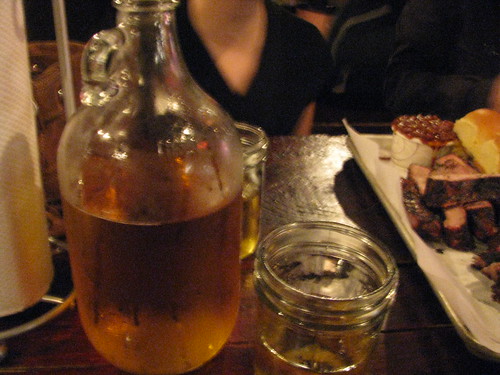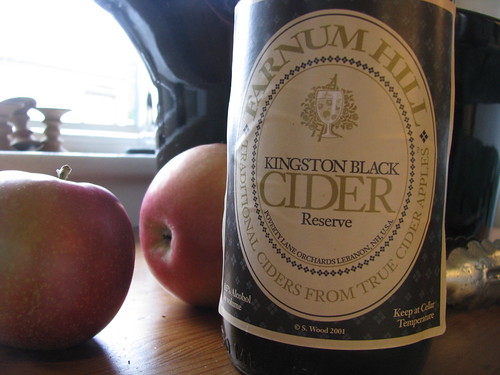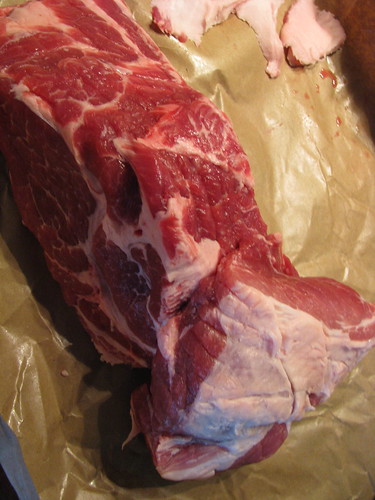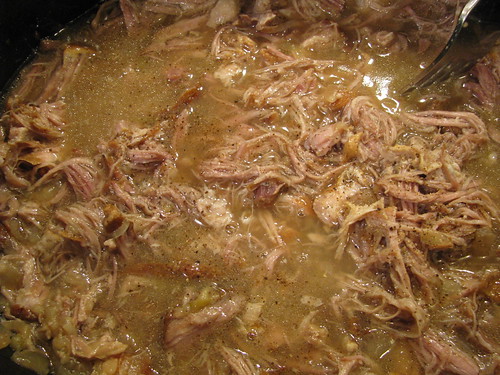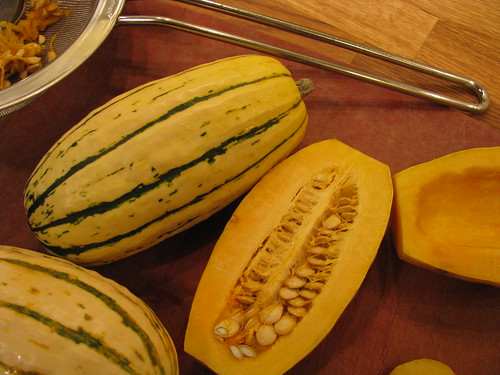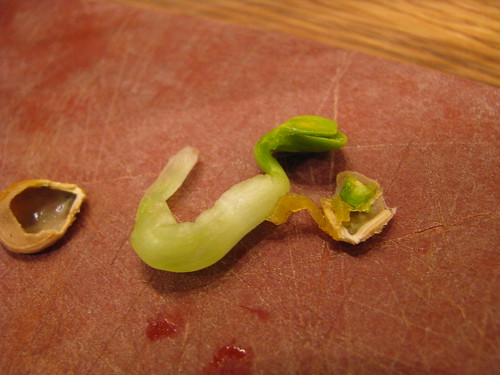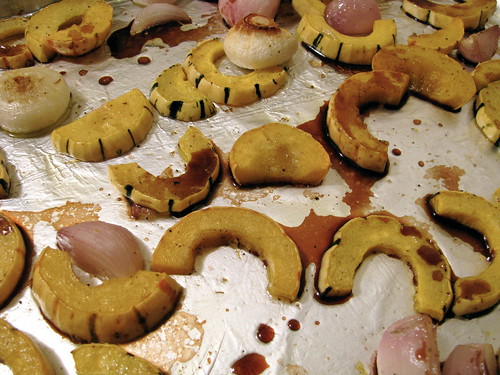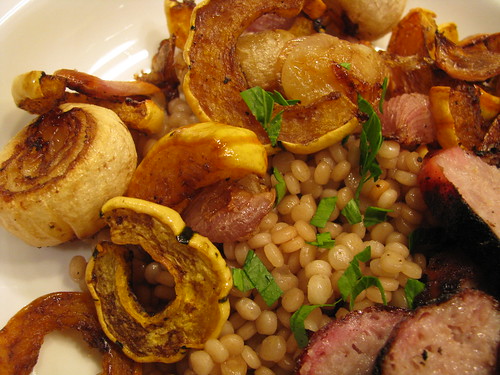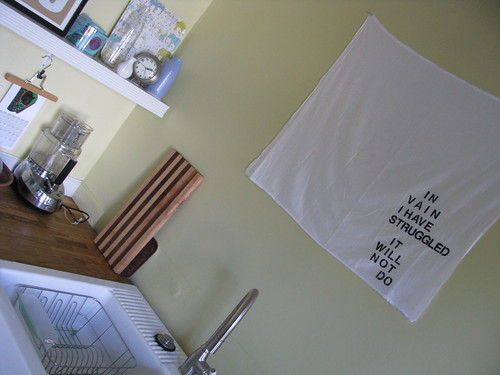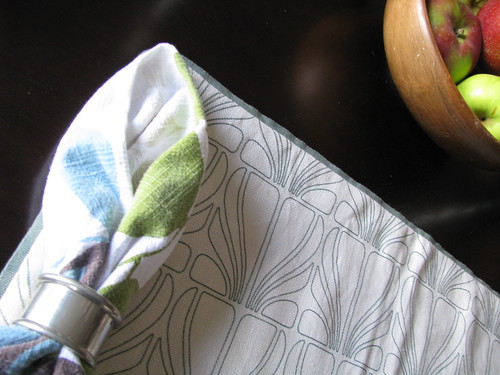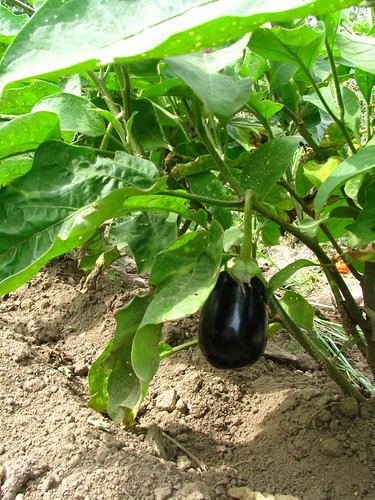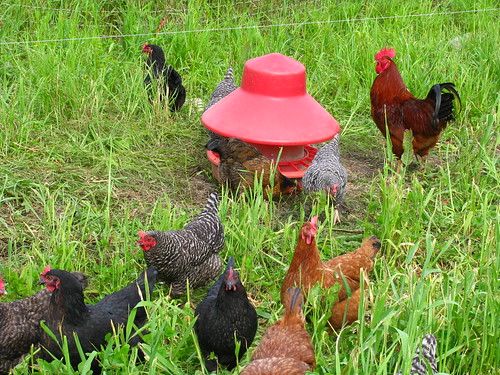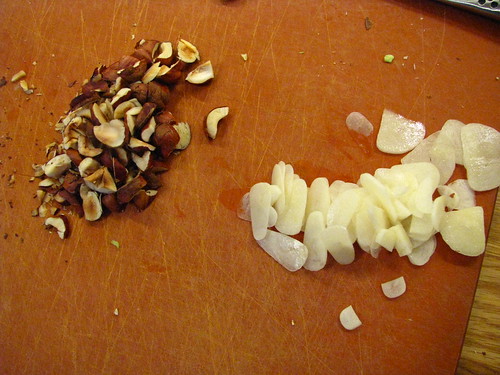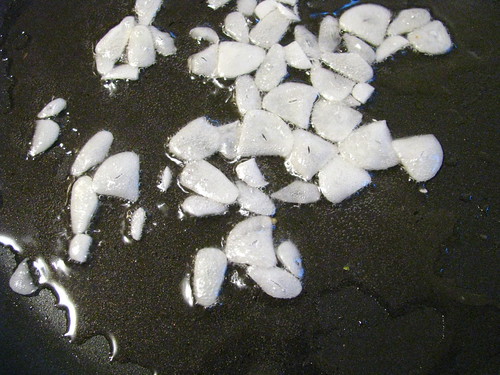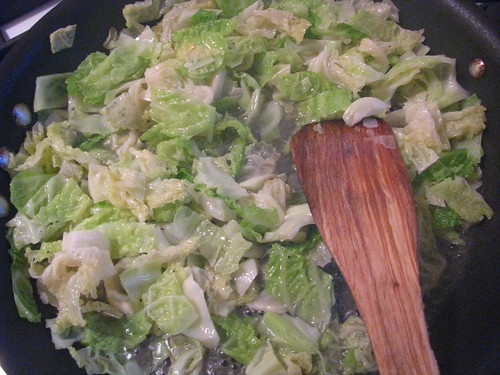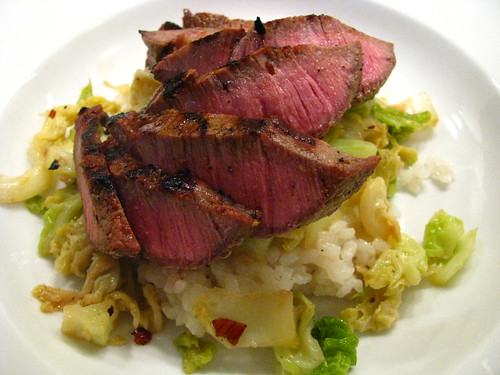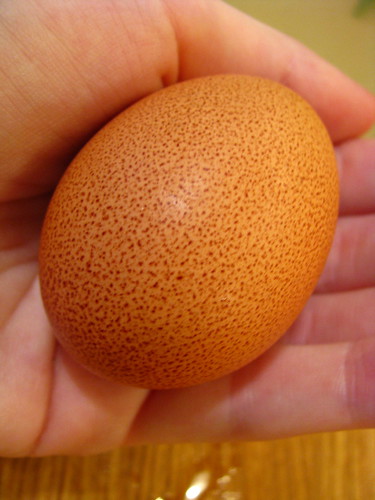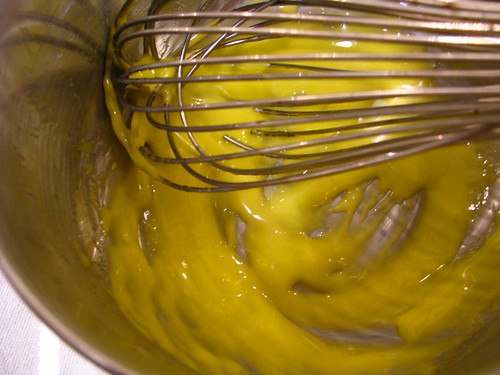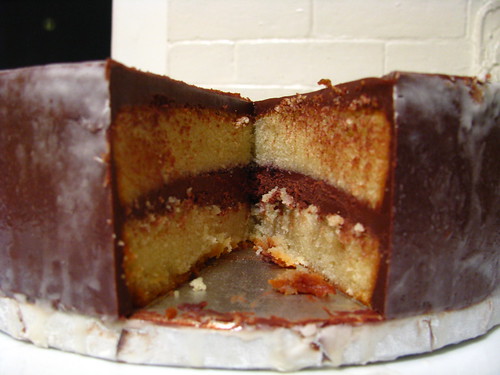Ben and I had a long conversation a couple weeks ago, while we were in the car driving back to Cambridge from New Hampshire. We were talking about goals and dreams and we somehow got on the topic of the blog and what I want to do, career-wise, and eventually I found myself going on and on about why I care about food. As I spoke I started to make some connections to my childhood and the way we live now, and I thought it might be useful to lay those things out. Warning, this is long. Long long.

Dinner as bonding time
This isn’t rocket science. There have been tons of studies that link eating dinner as a family to better test scores, behavior, success in life, etc. I’m sure all of that is true, but the root is bonding time, I think.
When I was a kid, we ate dinner at the table every night. Sure, there were exceptions (my parents had a work event, one of us had a play or something at school), but 95% of weeknights we sat down at the table. As my mom finished dinner, Dad would turn off NPR and turn on Dave Brubeck or Miles Davis, light the candles, turn off the overhead lights, and we would set the table with cloth napkins. Everyone was expected to participate in the conversation (which was a major drag when I was 13 or 14), and we stayed at the table until everyone was finished eating. After the main course we’d have salad and wipe our plates with a bit of bread.
When I got married, my mom gave me napkin rings with our initials, along with cloth napkins, as a wedding gift. I don’t know why lighting the candles and using real napkins makes a difference to me, but it does. Maybe it’s that there is a distinct moment when it is truly Dinner Time. Sometimes we are eating a really simple salad and some bread with cheese toasted on it, but we sit across from each other at the table and we talk about our days and it is a really important part of our lives. We both feel off-kilter when we go a week or two without regular meals together at home.
Eating together means you are checking in every night, without the distraction of TV to let you get off the hook and avoid talking. It means eye contact and a glass of wine (or water!) and a respite from the blackberry. It’s not really about the food, but:

Food as social fodder
At some point I started thinking about food more seriously, and I chalk that up to my family, too. When I was in elementary school my mom started teaching cooking classes, as well as getting more and more serious about food herself. By the time I was in high school we were regulars at the farmers market and she had an in with a wholesale gourmet purveyor in Portland. Food had become the common language in my family, and we talked about it all the time.
Ben first visited us in Oregon the summer after we started dating, and at a certain point that week he turned to me and said “Um, do you guys ever stop talking about food?” No. If we’re not discussing what’s for dinner (say, because we’re currently eating dinner), we may be talking about things we plan to eat tomorrow, or things we ate recently that we want to replicate, or what’s due soon at the farmer’s market. Months before a trip to Eugene, my mom starts making a list of things we need to cook while I’m home. We’re a little obsessed.
The result is that I think about food all the time, sort of the way a sports fan thinks about his team of choice. I’m not into the whole “foodie” (gah) restaurant scorecard/chef-tracking thing, but I get really giddy about asparagus season.
What I don’t like is snobbishness and the idea that food needs to be fancy to be good. Food needs to be good to be good. Sure, I focus on trying to keep what I cook local and seasonal, but I won’t lie, we were at a small country fair this weekend and I found it crucially important to sample both the “giant donut” and the fried dough. And some cotton candy. (The giant donut won, and it was indeed the size of my face.) Which brings me to my last point (and about time, too):

Food should be fun and delicious, not scary
I was pleased that the movie version of Julie and Julia highlighted my favorite Julia Child advice, “be fearless.” (My other favorites, paraphrased: never apologize (this trips me up), always mix with your hands, and cover mistakes with whipped cream.) Cooking and eating should be fun, enriching experiences, not stressful ones. When we got married I had never cooked dinner regularly. Living in NYC with roommates and crappy kitchens meant that if I made anything at home, it was probably a fried egg or some Trader Joe’s dumplings. And yet I plunged into cooking that first year in Hanover, choosing Sunday Suppers at Lucques as my cookbook of choice and throwing one, maybe two dinner parties each week. Of course I overshot sometimes, and got stressed out trying to time the meals right, and I freaked out that time the plastic wrap melted into the short ribs, but it never occurred to me that I should start with simpler things, because for me the challenge made it fun.
Maybe it’s because I grew up sitting on the desk in the kitchen while my mom cooked dinner–I certainly didn’t cook much at home, aside from helping her with tedious tasks and going on occasional baking kicks. I did know how to do a lot of basic things, but let me tell you, my knife skills were pretty shoddy. The first time I made those triple pork burgers they took forever, and I swore it wasn’t worth the trouble. Funny; the most recent time I made them the prep took about 1/4 the time. Practice does, indeed, make something closer to perfect. (Though Ben and my mom swear that if I keep practicing one day I’ll be good at slicing bread, and so far that is a blatant lie. Stupid wonky slices.)
What I want to get across is that cooking doesn’t need to be intimidating. The worst that can happen is that you burn the hell out of something, or, um, explode the pyrex, or flood the kitchen with pizza dough. Kitchens are made to be cleaned up. You can always eat a scrambled egg or order takeout if things go truly awry.
I write about food because food makes me happy, and I want it to make other people happy, too.
In the interest of service journalism, How to enjoy food, my humble guide:
Geek out about the colors and shapes of vegetables and food. Use white plates, or vintage ones that make you happy. Try a complicated recipe when it won’t freak you out if it doesn’t work. When in doubt, make a braised stew. Buy dessert unless you really feel up to it. Eat fried dough at every fair you encounter. Eat more noodles. Use salt and butter and olive oil and sugar: In my experience, you’ll be ok if you’re also avoiding processed foods and eating lots of delicious vegetables and not eating pounds of any one thing. Visit farms. Visit farmer’s markets. Save up for one really astonishing meal every so often. Light the candles and sit down at the table for dinner. Brussels sprouts. Cabbage. Carrot salad. Beets. Garlic. Also wine. And, in the summer, gin.
—-
And now I’m going to go make a dutch baby for dinner, because who doesn’t love an oven pancake?















